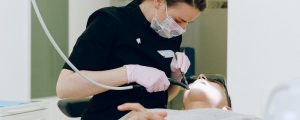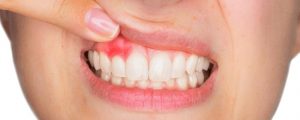Dental Services
Generic Pages
How to Handle Dental Emergencies
Dental emergencies can be stressful, painful, and inconvenient. It is very essential to understand the importance of emergency dental care and how to handle dental emergencies. In this article, we will discuss the significance of emergency dental care and provide tips on how to handle common dental emergencies.
Importance of Emergency dental care
- Provides pain relief: Dental emergencies can often cause severe pain and discomfort. Emergency dental care can help in providing immediate relief from pain and reduce discomfort to a certain extent, which can allow you to resume your daily activities with a bit of ease.
- Prevents permanent damage: In certain dental emergencies, such as a knocked-out tooth or a severe toothache, immediate treatment is very important to make sure that the patient does not suffer from permanent damage to his/her teeth and gums. Delaying treatment can result in irreversible damage which can also turn out to be costly if treated in future.
- Restores oral function: Dental emergencies can interfere with your basic abilities such as speak, eat, and perform daily activities. Emergency dental care can help in restoring your oral function, allowing you to continue with your day-to-day activities.
- Helps in preventing infections: Dental emergencies such as a tooth abscess or a cracked tooth can lead to serious infections if not treated on time. Infections can spread quickly and can be damaging to your overall health. Emergency dental care can help to prevent the spread of infections and protect your oral and overall health.
How to handle Dental Emergencies
- Knocked-out tooth: If a permanent tooth has been knocked out, the first thing to do is to pick it up by the crown (the top part of the tooth) and rinse it properly with water. Avoid scrubbing or removing any tissue fragments. Once you have rinsed the tooth, place it in a container of milk or saltwater and contact your dentist immediately.
- Toothache: If you are facing severe toothache, rinse your mouth with warm water and floss gently to remove any food particles that may be causing the pain. If the pain still persists, take over-the-counter pain medication and apply some cold compress to the affected area. Contact your dentist immediately for an emergency appointment.
- Tooth abscess: An abscess is a dental emergency that requires immediate medical attention. Rinse your mouth with salt water and take over-the-counter pain medication to reduce discomfort. Contact your dentist immediately for an emergency appointment.
- Broken or chipped tooth: If your tooth gets broken or chipped, rinse your mouth immediately with warm water and apply a cold compress to the affected area to reduce swelling. If the tooth is sharp, cover it with dental wax or sugarless gum to protect your tongue and cheeks. Contact your dentist for an emergency appointment.
- Lost filling or crown: If a filling or crown falls out, rinse your mouth immediately with warm water and apply dental cement (can be purchased from drug stores) to the affected area to reduce pain and protect the tooth. Contact your dentist for an emergency appointment.




